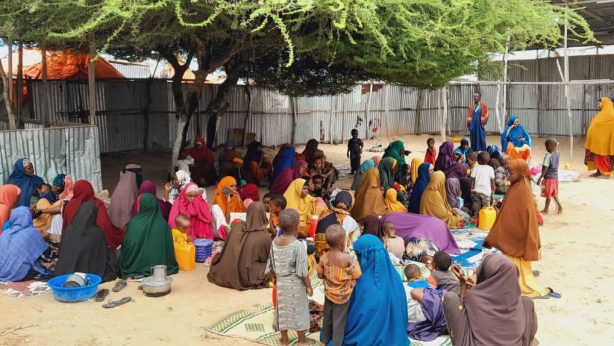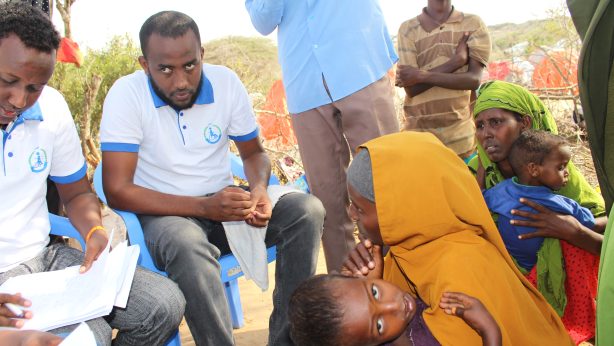“Facing the Education Crisis: Somali Children with Disabilities in Mogadishu Camps
Introduction:
In the bustling city of Mogadishu, where life often takes unexpected turns amidst political instability and economic challenges, there exists a hidden crisis that demands our immediate attention: the lack of education for Somali children with disabilities living in displaced people’s camps. These children, already vulnerable due to displacement, face formidable barriers to accessing quality education, making them even more marginalized within their own society. Today, we delve into the harsh realities they endure and the urgent need for change.
The Forgotten Among the Forgotten:
Somalia has endured decades of conflict, leaving many families displaced and struggling to make ends meet. For children with disabilities, this struggle is magnified. These children are often overlooked, not only by their own communities but also by humanitarian organizations and government agencies. Discrimination, stigma, and a lack of awareness compound their challenges, leading to a vicious cycle of exclusion.
Barriers to Education:
- Physical Inaccessibility: Many camps lack the infrastructure necessary to accommodate children with disabilities. Ramps, wide doorways, and accessible toilets are often missing, making it impossible for these children to access schools or educational facilities.
- Lack of Specialized Support: Trained teachers and resources for children with disabilities are scarce. Without the necessary support, these children cannot access a quality education tailored to their unique needs.
- Cultural Stigma: Deep-seated cultural beliefs around disability persist, leading to discrimination and social isolation. Families may hide their disabled children due to shame, preventing them from accessing educational opportunities.
- Economic Hardships: Families struggling to meet basic needs often cannot afford the additional costs associated with disability, such as medical care or specialized education.
The Way Forward:
- Inclusive Education: There is an urgent need to promote inclusive education that welcomes all children, regardless of their abilities. This involves providing accessible infrastructure, training teachers in inclusive pedagogy, and creating a safe and nurturing environment.
- Awareness Campaigns: Communities must be engaged in awareness campaigns to combat stigma and discrimination. Changing attitudes towards disability will be crucial in ensuring that these children are accepted and encouraged to pursue an education.
- Government Support: The Somali government, in collaboration with international organizations, must prioritize the education of children with disabilities. Allocating resources and implementing policies that protect their rights is essential.
- Community Involvement: Engaging local communities in the education of these children is vital. Empowering parents, caregivers, and community leaders to advocate for inclusion can drive positive change.
- Donor Assistance: International donors must recognize the unique challenges faced by Somali children with disabilities and allocate funding to support their education. This includes providing financial aid to families and organizations working on the ground.
Conclusion:
The lack of education for Somali children with disabilities in Mogadishu camps is a crisis that cannot be ignored any longer. These children deserve the same opportunities as their peers, and it is our collective responsibility to ensure they receive the education and support they need to thrive. By addressing the barriers they face and fostering a more inclusive society, we can take significant steps towards breaking the cycle of exclusion and poverty that has plagued these children for far too long.


